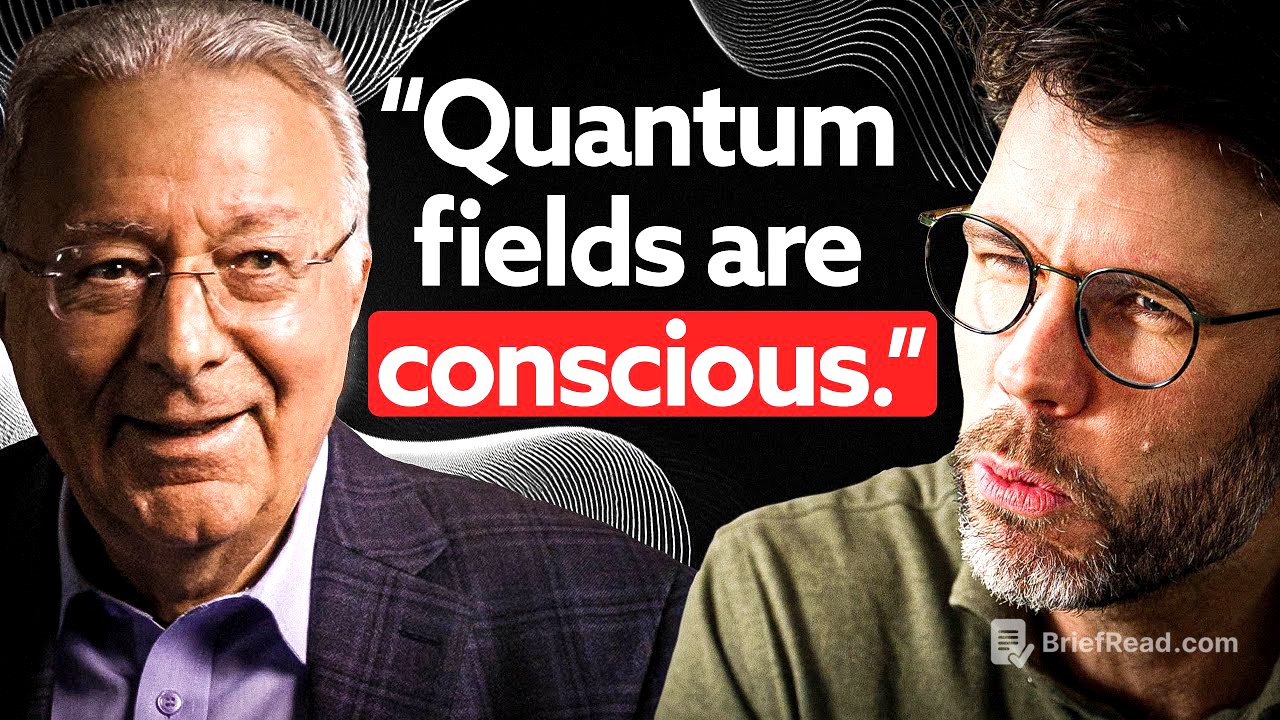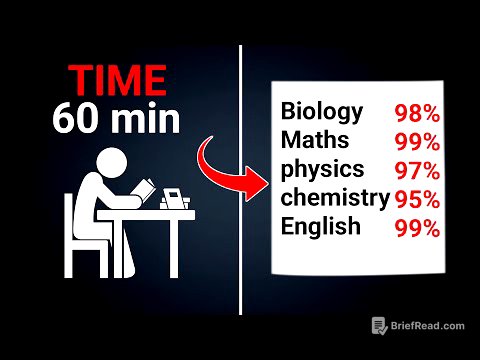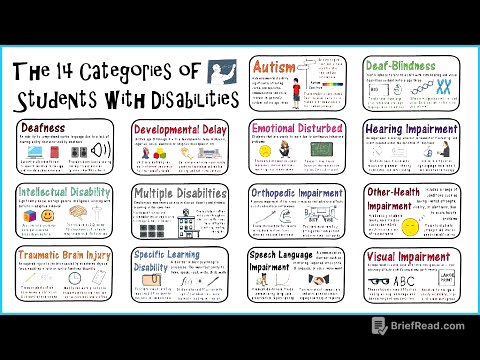TLDR;
This video features an interview with Federico Faggin, the inventor of the microprocessor, who discusses his theory of consciousness, quantum information, and the nature of reality. Faggin explains how a personal experience led him to investigate consciousness, arguing that it is a fundamental aspect of reality, not an emergent property of matter. He contrasts biological intelligence with computers, emphasizing the quantum nature of cells and the role of free will in the collapse of the wave function. Faggin also touches on the implications of his theory for artificial intelligence, the integration of science and spirituality, and the understanding of death.
- Consciousness is fundamental and not an emergent property of matter.
- Quantum information is key to understanding consciousness and the nature of reality.
- Free will is foundational and influences the collapse of the wave function.
- Biological intelligence is quantum and classical, unlike purely classical computers.
- The universe is holistic, dynamic, and wants to know itself.
Intro [0:00]
The video introduces Federico Faggin's theory of consciousness, which posits that our bodies are operated like drones from a conscious quantum field. This implies that experiences and qualia do not reside in the body but exist within this field. Faggin, the inventor of the first CPU and touch bad, spent 30 years realizing that mathematics is created by consciousness and cannot explain it. He believes that consciousness is a quantum phenomenon that goes beyond current physics, requiring concepts of quantum fields and quantum information. Faggin collaborated with physicist Giacomo Mauro D'Ariano, who demonstrated that quantum physics can be derived from quantum bits.
Federico's Personal Experience [3:20]
Federico recounts a pivotal experience during a Christmas holiday in Lake Tahoe in 1990. Feeling unfulfilled despite achieving worldly success, he experienced an overwhelming sensation of unconditional love emanating from his chest. This love was accompanied by a white, scintillating light and a profound realization that his consciousness was both within and outside of himself. He understood that he was both the observer and the observed, and that everything is made of this "stuff." This experience shifted his perspective from materialism to recognizing consciousness as fundamental, leading him to dedicate a significant portion of his time to understanding it.
The New Theory: Biology vs Computers [9:03]
Faggin asserts that we are fields that are part of a larger whole, and these fields exist outside of space and time. He contrasts this view with the scientistic perspective that humans are machines, warning that this belief could lead to control by artificial intelligence. He emphasizes that the body is a complex quantum and classical machine, far more intricate than a computer. Every cell in the body is a part-whole, containing the potential knowledge of the entire organism, making us holographic. This contrasts with microprocessors, which are made of simple on/off switches that lack awareness of the whole system.
What is a particle? [21:05]
Faggin clarifies that a particle, such as an electron, is not an object separate from the field but rather a state of the field. Particles are integral to the field and cannot be separated from it. Physicists observe the effects of the field's state on the classical world, which are then interpreted as particles.
The Quantum vs the Classical world [22:11]
Faggin explains that there is no clear boundary between the classical and quantum worlds; reality is holistic and not made of separable parts. He criticizes the desire for a deterministic, reductionistic world driven by a need for power and control. Quantum physics indicates that the universe is holistic, with everything connected from the inside. He argues that mathematics is created by consciousness, not the other way around, and that quantum information goes beyond quantum fields.
Can we explain quantum mechanics in a materialist worldview? [33:48]
Faggin argues that there is no universally agreed-upon interpretation of quantum physics after 100 years of discussion. He posits that consciousness and free will must be taken as foundational postulates because they are self-evident through personal experience. He criticizes emergentism, the idea that more can come from less, asserting that determinism can come from indeterminism, and unconsciousness from consciousness, but not vice versa.
Free will an illusion? Why do we ask this question? [36:48]
Faggin challenges those who insist that free will is an illusion, questioning their motivations and suggesting a hidden desire for control and power. He emphasizes that the reason we know is because we are conscious, and computers do not understand because there is no meaning in bits. Mathematics can only represent qualia, the sensations and feelings, but not the meaning behind them.
Joining Science & Spirituality [40:32]
Faggin explains that he is joining science and spirituality by integrating the outer world of science with the inner world of meaning, experience, consciousness, and free will. He starts with a postulate that is self-evident: the totality of what exists is dynamic, holistic, and wants to know itself. Wanting implies free will, and knowing implies consciousness. He asserts that this postulate can explain quantum physics.
Reflections on Donald Hoffmanns Theory [45:19]
Faggin reflects on Donald Hoffman's theory and emphasizes the need for concrete explanations rather than mystical allusions. He believes his approach provides a more concrete understanding, showing how quantum physics emerges from consciousness. He reinterprets physics without changing it, explaining consciousness, which creates math.
Will You Prove This? [47:40]
Faggin states that his theory is falsifiable and can make testable predictions. He predicts that trees are conscious and can conduct experiments to demonstrate this, even though trees lack brains. He guarantees that he will prove this, disproving the notion that consciousness is solely a product of the human or animal brain.
Will Al Be Better Than Us? [51:04]
Faggin believes that only a change in the understanding of who we are can shift the paradigm, not AI. He argues that the current paradigm of scientism ends with AI, which falsely claims that machines will surpass humans. Creativity is non-algorithmic, and AI cannot recognize a good idea without human consciousness and comprehension. He supports AI as a tool but opposes the idea of AI dominating humans or being used for monetization.
Where Could This Theory Lead Us? [54:10]
Faggin suggests that understanding consciousness as beyond matter, space, and time allows us to explore the universe through out-of-body experiences. Consciousness is a more powerful tool for knowing than any instrument. He envisions a future where society is based on cooperation rather than competition, driven by a direct experience of who we are as both the observer and the observed.
If We Are All One, How Does Seperation Work? [57:34]
Faggin explains that if one wants to know itself, it must know itself completely. In that instant of knowing, it creates a part-whole of itself, similar to mitosis. Life is the reproduction of one, and one knowing itself creates another part-whole. He calls a field that is conscious, has free will, and wants to know itself a "saty," distinguishing it from quantum fields.
What Happens When We Die? [1:03:10]
Faggin asserts that we never were in the body; it is the body that dies, not us. The "saty" that sees a portion of itself called the ego thinks it is the body. When the body dies, the ego no longer receives signals from the body and looks around, discovering a different world. He uses the metaphor of controlling a drone to explain this, suggesting that death is like the drone being shot down, causing the pilot to realize there is a larger world beyond what the drone was showing.
How Quantum Information Panpsychism Is Fundamentally Different Then Classical Panpsychism [1:11:26]
Faggin clarifies that his version of panpsychism, Quantum Information Panpsychism (QUIP), differs from classical panpsychism. The combination problem, a criticism of panpsychism, is solved in QUIP because combining quantum states creates a new state that is more than the sum of its parts. He argues that emergentism requires quantumness, as every creation comes from the quantum or inner world.
Is there An End-Point To The Universe? [1:13:07]
Faggin suggests that there is no end point to the universe because the more one knows, the more there is to know. Making new connections opens up other possibilities, leading to explosive growth.
Why Is Space Expanding Exponentially? [1:13:55]
Faggin hypothesizes that space is expanding exponentially because it is the memory of the self-knowing of one. As one knows more about itself, space must inflate and grow. Quantum states only exist within a narrow present, so experiences must be put into long-term memory.
Resonance & Purpose [1:15:41]
Faggin believes that each individual is born with a purpose and finds peace in doing what they came here to do. He suggests the universe is thinking to itself, looking through different perspectives to understand itself better. Communication brings inner resonance, and creating a common understanding builds a new quantum state and a higher-level society. He contrasts this with the current world, where classical information and AI dominate, hindering self-knowing.








